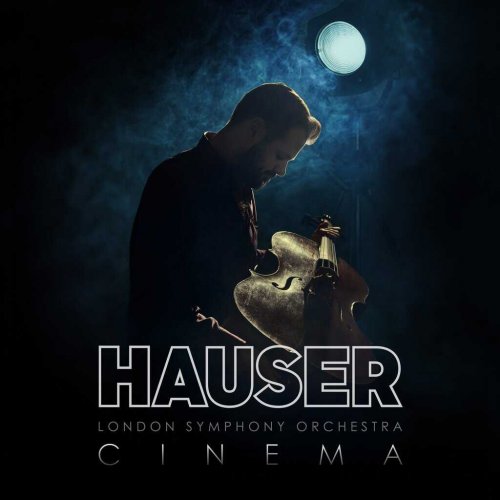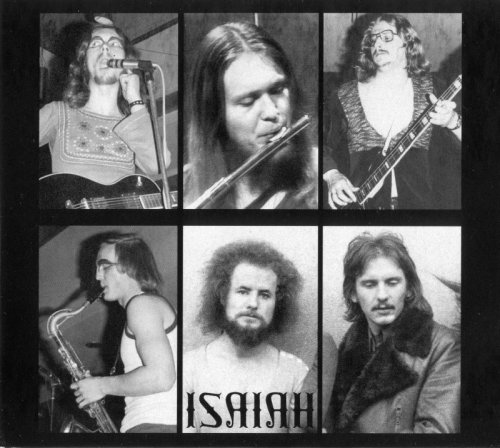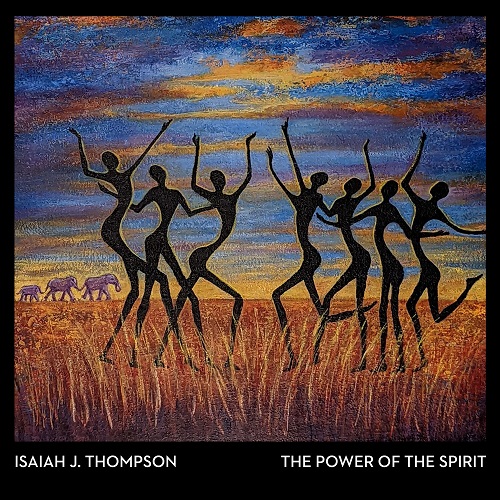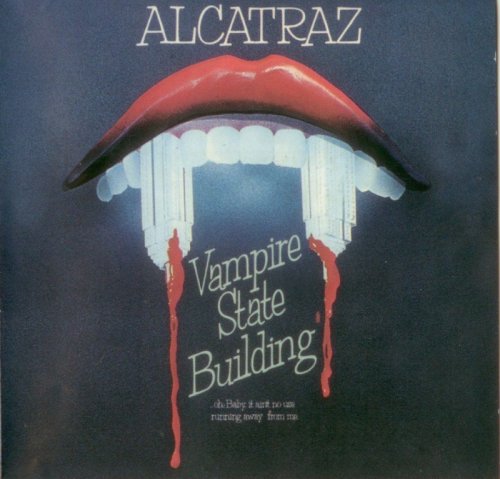DEE D. JACKSON «Discography on vinyl» + bonus (5 × LP + 2 × CD · Jupiter Records · 1978-1997)
Performer: DEE D. JACKSON / D・D・ジャクソン Album / collection: «Discography on vinyl / レコードのディスコグラフィー» + bonus Label: (c)(p) 1978-1981, 1997 Jupiter / Victor / Durium S.p.A. Source: Rip by bazar, Dymokust, polydor ⇒ Conversion 32/192kHz by KoGGaN™ Official DR value: •12•12•14•13•13•12•13• Catalog (Barcode): much… Genre / Style: Pop, Electronic, Cosmic Disco Year (info): 1978-1997 (5 × Original vinyl, LP, + 2 × CD, Collection—) Format: WV (image + .cue) Bitrate: 32bit/192kHz Stereo Covers: in

DEE D. JACKSON «Discography on vinyl» + bonus (5 × LP + 2 × CD · Jupiter Records · 1978-1997)
Performer: DEE D. JACKSON / D・D・ジャクソン Album / collection: «Discography on vinyl / レコードのディスコグラフィー» + bonus Label: (c)(p) 1978-1981, 1997 Jupiter / Victor / Durium S.p.A. Source: Rip by bazar, Dymokust, polydor ⇒ Conversion 32/192kHz by KoGGaN™ Official DR value: •12•12•14•13•13•12•13• Catalog (Barcode): much… Genre / Style: Pop, Electronic, Cosmic Disco Year (info): 1978-1997 (5 × Original vinyl, LP, + 2 × CD, Collection—) Format: WV (image + .cue) Bitrate: 32bit/192kHz Stereo Covers: in
16 09, 2025
HAUSER - Cinema (2025)
rip by Boris1 Performer: Hauser Album: Cinema Label: Masterworks Catalog #: 19802930052 Style: Soundtrack, Instrumental, Easy Listening Year: 2025 Format: Flac (*image + .cue,log,scans) Bitrate: lossless Covers: in archive Amount of tracks: 15 Size Rar: ~ 352 MB Upload: xfile Recovery: 3% Password: sim-sim Мировая сенсация виолончелист HAUSER выпускает свой новый альбом CINEMA - глубокую дань уважения самым незабываемым мелодиям из кинофильмов. С его несомненным артистизмом и страстью HAUSER

HAUSER - Cinema (2025)
rip by Boris1 Performer: Hauser Album: Cinema Label: Masterworks Catalog #: 19802930052 Style: Soundtrack, Instrumental, Easy Listening Year: 2025 Format: Flac (*image + .cue,log,scans) Bitrate: lossless Covers: in archive Amount of tracks: 15 Size Rar: ~ 352 MB Upload: xfile Recovery: 3% Password: sim-sim Мировая сенсация виолончелист HAUSER выпускает свой новый альбом CINEMA - глубокую дань уважения самым незабываемым мелодиям из кинофильмов. С его несомненным артистизмом и страстью HAUSER
15 09, 2025
ERIC CLAPTON «Discography» (60 × CD · First Press + 24KT Gold CD · 1966-2024)
Performer: ERIC CLAPTON / エリック・クラプトン Album / collection: «Discography / ディスコグラフィー» +++ Label: (c)(p) 1966-2024 Duck ⁄ Reprise ⁄ MFSL ⁄ Audio Fidelity ⁄ WEA International Inc. Source: Rip by KoGGaN™ scans by inet… Official DR value: •10•10•11•10•12•11•11•11•11/11•15•13/9•13•13• •13•12•14•14•14•14•13/12•13•15•13•14•12/12•14•13•14•13•14•11• •13•10•12•8•8/12•12•13•7•7•7•7•11•9•8•8/8/8•8/8/8•11•8•11•10• Catalog (Barcode): much… Genre / Style: Rock, Classic Rock, Blues Rock, Southern Rock, Acoustic

ERIC CLAPTON «Discography» (60 × CD · First Press + 24KT Gold CD · 1966-2024)
Performer: ERIC CLAPTON / エリック・クラプトン Album / collection: «Discography / ディスコグラフィー» +++ Label: (c)(p) 1966-2024 Duck ⁄ Reprise ⁄ MFSL ⁄ Audio Fidelity ⁄ WEA International Inc. Source: Rip by KoGGaN™ scans by inet… Official DR value: •10•10•11•10•12•11•11•11•11/11•15•13/9•13•13• •13•12•14•14•14•14•13/12•13•15•13•14•12/12•14•13•14•13•14•11• •13•10•12•8•8/12•12•13•7•7•7•7•11•9•8•8/8/8•8/8/8•11•8•11•10• Catalog (Barcode): much… Genre / Style: Rock, Classic Rock, Blues Rock, Southern Rock, Acoustic
15 09, 2025
Жанры
Lossless Galaxy Release
Русская музыка
--Поп
--Рок
--Панк
--Альтернатива
--Металл
--Рэп, Хип-Хоп, R'n'B
--Джаз и Блюз
--Фолк
--Шансон, Авторская песня
--СССР
Зарубежная музыка
--Pop
--Rock
--Hard Rock
--Progressive & Art-Rock
--Pop-Rock & Soft Rock
--Instrumental Rock
--Heavy, Traditional, Industrial Metal
--Power, Gothic, Sympho Metal
--Thrash, Speed, Groove, Modern Metal
--Death, Melodic Death, Doom, Dark Metal
--Black, Pagan, Folk, Viking Metal
--Alternative
--Punk
--Disco, Eurodance
--Rap, Hip Hop, R'n'B
--Reggae, Ska, Dub
--Jazz, Blues, Soul
--Folk, Country, Ethnic
--Electronic, Ambient, New Wave
--House, Techno, Trance
Другие жанры
--New Age, Relax, Meditative & Flamenco
--Chillout, Lounge, Downtempo, Trip-Hop
--Drum & Bass, Jungle, Breakbeat, IDM
--Classical / Классическая музыка
--Soundtrack
--Музыкальные сказки
Vinyl Rip
HI-Res / DVD-Audio / DTS
--SACD
--DSD
--DVD-Audio
Сборники Lossless-Galaxy
Альбомы 2022
Альбомы 2023
Альбомы 2024
Теги
1st Press 2022 2023 2024 2025 70... AOR Black Metal Blues Blues Rock Bootleg Series Classic Rock Death Metal Discography Exclusive for Lossless-Galaxy Folk Rock Fusion Hard Rock Heavy Metal Hi-Res Japanese Edition Jazz Jazz Rock lossless Melodic Death Metal Melodic Rock Modern Electric Blues Pop Pop Rock Power Metal Prog Rock Progressive Metal Progressive Rock Psych Rock Psychedelic Rock Rock SACD Symphonic Metal Thrash Metal Дискографии от KoGGaN
Архивы
Опрос
В каком формате хотели бы видеть релизы на сайте ?
 Автор: sirk, 3 января 2024, Комментариев: 0, Просмотров: 290
Автор: sirk, 3 января 2024, Комментариев: 0, Просмотров: 290Isaiah - Isaiah (1975) (Limited Edition, Remastered, 2014) 2CD
Artist: Isaiah
Title Of Album: Isaiah
Year Of Release: 1973-77/2014
Label (Catalog#) : Digatone [DIG 002]
Country:: Austria
Genre: Prog Rock, Jazz Rock
Quality: Flac (image+cue,log)
Bitrate: Lossless
Time: 30:52+54:58
Full Size: 525Mb(+3%)(covers)
Upload: xfile.cloud
Title Of Album: Isaiah
Year Of Release: 1973-77/2014
Label (Catalog#) : Digatone [DIG 002]
Country:: Austria
Genre: Prog Rock, Jazz Rock
Quality: Flac (image+cue,log)
Bitrate: Lossless
Time: 30:52+54:58
Full Size: 525Mb(+3%)(covers)
Upload: xfile.cloud
Tracks:
-------
CD1: Original LP, 1975
1. Jericho (3:51)
2. Summer Farewell (5:16)
3. Leave It All Behind (5:33)
4. Afterwards (7:45)
5. Prophet (8:42)
CD2: Previously unreleased demos, 1973-77
1. Playing The Circle Game 2:43
2. Nightmare 4:35
3. Same To You 4:46
4. No Reason 4:46
5. The Fighter 4:21
6. Long Way 10:35
7. Hero 11:15
8. Sunset 3:43
Personnel:
-----
Gerd Raabe (lead vocals, flute, acoustic guitar, percussion)
Michael Bornhorst (tenor saxophone, clarinet)
Hans Gasser (bass)
Walter Reschauer (drums, percussion)
Edu Weber (lead guitars, backing vocals)
Hubertus Nolte (keyboards, backing vocals)
All thanks to original releaser
-------
CD1: Original LP, 1975
1. Jericho (3:51)
2. Summer Farewell (5:16)
3. Leave It All Behind (5:33)
4. Afterwards (7:45)
5. Prophet (8:42)
CD2: Previously unreleased demos, 1973-77
1. Playing The Circle Game 2:43
2. Nightmare 4:35
3. Same To You 4:46
4. No Reason 4:46
5. The Fighter 4:21
6. Long Way 10:35
7. Hero 11:15
8. Sunset 3:43
Personnel:
-----
Gerd Raabe (lead vocals, flute, acoustic guitar, percussion)
Michael Bornhorst (tenor saxophone, clarinet)
Hans Gasser (bass)
Walter Reschauer (drums, percussion)
Edu Weber (lead guitars, backing vocals)
Hubertus Nolte (keyboards, backing vocals)
All thanks to original releaser
Внимание! У Вас нет прав для просмотра скрытого текста.
Похожие новости:
Комментарии отсутствуют
Добавить комментарий!
Информация
Посетители, находящиеся в группе Гости, не могут оставлять комментарии к данной публикации.





![Tito Jackson - Tito Time [Japanese Edition] (2016)](http://s41.radikal.ru/i093/1707/16/0a41f75f11bd.jpg)
